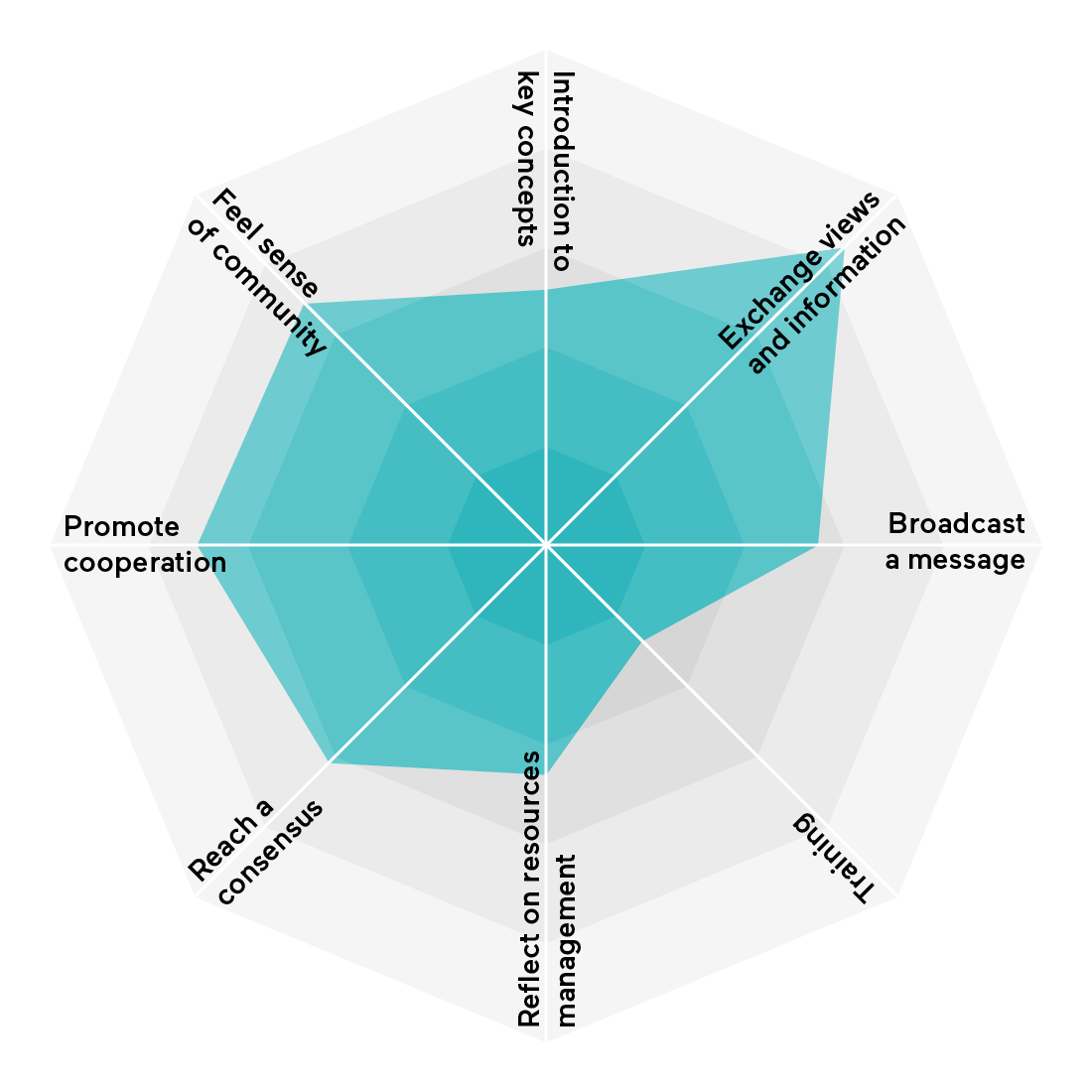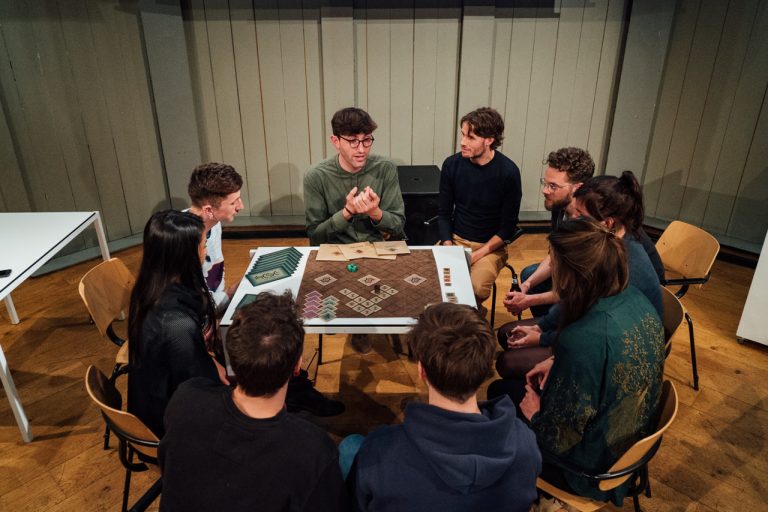We have divided the games we discovered into multiple categories, based on their features. The categories we use are commons-related features, best context to play and the characteristics of the gameplay. Choose the game that fits your commons-related purpose best! To get more information about a certain aspect as listed down below, slide your mouse over the feature you prefer.
Commons-related features:
The commons-related features tell us how the games can be useful in facilitating a dialogue about commons. For example, by defining basic concepts or making players cooperate among them.
- Introduction to key conceptsThe game defines basic elements to understand some aspects of the commons (for example, the meaning of private, public and communal).
- Exchange views and informationThe game allows players to exchange ideas, information and world views while playing the game.
- Broadcast a messageThe game disseminates a message linked to the commons (for example, the importance of participatory design of the city).
- TrainingThe game helps to confer some skill to the players (for example, guide them to build urban gardens).
- Reflect on resources managementThe game lets you experience the challenges of managing a resource.
- Reach a consensusThe game helps participants to arrive at a decision each player can agree with.
- Promote cooperationThe game makes participants collaborate between them others and stimulate the concept of cooperation beyond the game’s duration.
- Feel sense of communityThe game lets participants feel part of a group with shared interests and grow the sense of community.
Best context to play the game:
Not all serious games are useful to address the same goals. In this section you will find the most appropriate scenarios to play them! For example, reporting on real problems or providing ludic elements to facilitate debates.
- Informed social debateThe game can be used to inform non-expert people about the commons and spark off a constructive debate on the topic.
- Community participation activityThe game can be a tool to involve people in communitarian and participation activities.
- Expert meetingThe game could work well during an expert meeting regarding the commons for different purposes (such as reflecting about an urban challenge in a non-standard way).
- Knowledge institution workshop or classThe game can be played in a university class or during a summer course to delve into different aspects of the commons.
- Internal team discussionThe game can be used during an internal working meeting to further a team’s thoughts about a project related to different aspects of the commons.
- Multi-stakeholder co-creation sessionThe game can be played to promote a debate with a wide range of actors (a.o. residents, designers or architects).
- Decision-making activityThe game can guide participant decision-making in a variety of contexts, for example by facilitating a voting or consent process.
Gameplay:
The gameplay defines the way that the game is designed and the skills needed in order to play it.
- FunThe game provides entertainment, amusement or enjoyment.
- InformativeThe game conveys concrete knowledge about or insight into a real-world situation.
- ChallengingThe game demands a considerable effort (e.g. to act under time pressure) to succeed.
- ComplexThe game is composed of many parts and this makes it complicated, difficult or involved.
- RealisticThe game play closely mimics or emulates real-world dynamics and contexts.
- ExplorativeThe game lets you experience alternative worlds.
- ProvokingThe game incites a reaction from you in relation to the topic of the game (e.g. anger, concern or disappointment).
- ImmersiveThe game causes a deep mental involvement, a complete immersion of the mind.
- Interactive/communalThe game incites a continuous exchange of information, ideas or experiences between the players. The game play is really ‘done together’.


